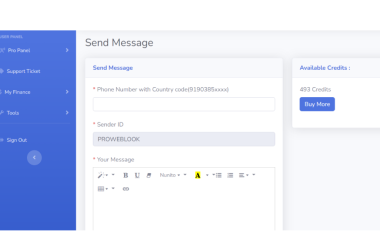Introduction.
Hexadecimal Calculators: In the realm of computing and digital electronics, hexadecimal notation plays a crucial role in representing data due to its convenience and efficiency. Hexadecimal calculators serve as indispensable tools for simplifying conversions between hexadecimal and decimal numeral systems. Understanding the significance of hexadecimal calculators and their role in converting between these two numeral systems is essential for programmers, engineers, and anyone working with digital data. This article aims to explore the intricacies of hexadecimal calculators, elucidating their operation, significance, and practical applications in converting between hexadecimal and decimal.
Understanding Hexadecimal and Decimal.
Before delving into hexadecimal calculators, it’s imperative to grasp the fundamental concepts of hexadecimal and decimal numeral systems. Decimal, or base-10, is the most familiar numeral system to us, comprising ten digits (0-9). Each digit’s position in a decimal number denotes its weight, with the rightmost digit representing units, the next representing tens, then hundreds, and so forth.
On the other hand, hexadecimal, or base-16, utilizes sixteen distinct symbols to represent numbers. These symbols include digits from 0 to 9, along with additional symbols A to F, where A represents 10, B represents 11, and so on up to F, representing 15. Hexadecimal numbers are commonly prefixed with “0x” to distinguish them from decimal numbers.
Converting between decimal and hexadecimal involves understanding the positional value of each digit. In hexadecimal, the rightmost digit represents units, the next represents 16s, then 256s, and so on, with each position increasing by a power of 16.
The Role of Hexadecimal Calculators.
Hexadecimal calculators serve as invaluable tools for simplifying the process of converting between hexadecimal and decimal numbers. These calculators are available in various forms, ranging from physical handheld devices to software applications and online tools. Their primary function is to perform arithmetic operations, conversions, and manipulations on hexadecimal and decimal numbers with ease and precision.
Operation of Hexadecimal Calculators.
Hexadecimal calculators typically feature a user-friendly interface designed to input, manipulate, and display hexadecimal and decimal numbers. They offer functionalities such as addition, subtraction, multiplication, division, and most importantly, conversion between hexadecimal and decimal.
When performing conversions from hexadecimal to decimal, the calculator interprets the hexadecimal input and computes its equivalent decimal value. Conversely, when converting from decimal to hexadecimal, the calculator translates the decimal input into its corresponding hexadecimal representation.
Significance in Programming and Digital Electronics.
Hexadecimal calculators hold significant importance in programming, digital electronics, and various technological domains. In programming, hexadecimal notation is commonly used to represent memory addresses, color codes, character encodings, and other data formats. Hexadecimal calculators facilitate seamless conversion between hexadecimal representations of data and their decimal equivalents, enabling programmers to work efficiently with memory addresses and other numerical values.
In digital electronics, hexadecimal notation simplifies the representation of binary-coded values. Each hexadecimal digit corresponds to four binary digits (bits), making it convenient for representing binary data in a compact and readable format. Hexadecimal calculators aid in converting binary values to hexadecimal and vice versa, facilitating the design, analysis, and troubleshooting of digital circuits and systems.
Practical Applications.
The practical applications of hexadecimal calculators extend beyond programming and digital electronics into various fields such as network administration, cryptography, and data analysis. In network administration, hexadecimal notation is utilized to configure network devices, assign IP addresses, and interpret packet headers. Hexadecimal calculators assist network administrators in managing network configurations and troubleshooting connectivity issues efficiently.
In cryptography, hexadecimal notation plays a vital role in representing cryptographic keys, ciphertexts, and hash values. Hexadecimal converters enable cryptographers to perform cryptographic operations, such as encryption, decryption, and hashing, using hexadecimal representations of data. These calculators aid in generating, manipulating, and analyzing cryptographic primitives, enhancing the security and integrity of digital communications and systems.
In data analysis and visualization, hexadecimal notation is employed to represent colors, pixel values, and other graphical elements. Hexadecimal converters facilitate the conversion between hexadecimal color codes and their corresponding RGB (Red-Green-Blue) values, enabling designers and developers to create visually appealing graphics and user interfaces.
Tips for Using Hexadecimal Calculators.
To make the most of hexadecimal calculators, consider the following tips:
1. Familiarize yourself with hexadecimal and decimal notation to understand the conversion process better.
2. Choose a hexadecimal calculator that suits your requirements, whether it’s a handheld device, software application, or online tool.
3. Practice performing conversions between hexadecimal and decimal numbers to enhance your proficiency with the calculator.
4. Explore additional features and functionalities offered by hexadecimal converters, such as bitwise operations and bitwise shifting.
5. Verify the accuracy of conversions by cross-checking results using alternative methods or manual calculations.
Conclusion.
Hexadecimal calculators play a vital role in simplifying the conversion between hexadecimal and decimal numeral systems, offering convenience, efficiency, and precision. Whether you’re a programmer, engineer, network administrator, cryptographer, or data analyst, hexadecimal calculators serve as indispensable tools for working with digital data and numerical values. By understanding the operation, significance, and practical applications of hexadecimal calculators, you can streamline your workflow, troubleshoot issues effectively, and harness the power of hexadecimal notation in various technological domains.
Kindly check our website Proweblook for more Web API tools. More resources can be found on our Github page, Social Channels are Twitter, Facebook & Youtube.








